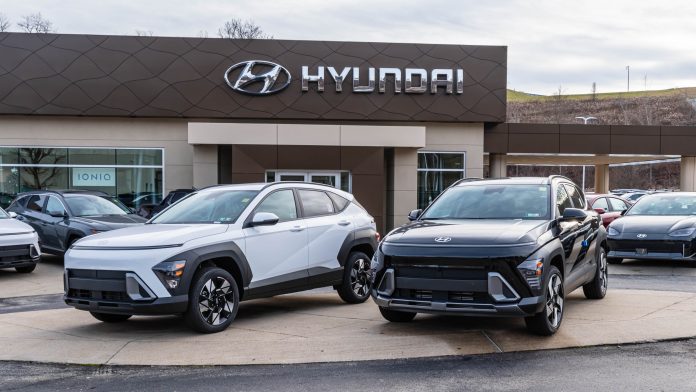Hyundai Motor Co. will raise vehicle prices across its U.S. lineup in an attempt to mitigate the impact of tariffs imposed by President Donald Trump, sources close to the situation told Bloomberg.
The automaker tentatively plans to enact a 1% increase on the MSRP of all Hyundai vehicles, with price hikes potentially taking effect as early as next week. This increase would apply only to newly built vehicles. Existing dealership inventory will remain unaffected.
In addition to MSRP increases, the company will likely raise shipping charges and the fees for pre-installed accessories such as floor mats and roof rails. These adjustments would help offset higher costs without further raising base prices. However, no final decisions have been made and the discussions are still ongoing.
“This period marks our regular annual pricing review, guided by market dynamics and consumer demand, independent of tariffs,” Hyundai said in a statement. “We will continue to adapt to shifts in supply and demand, and regulations, with a flexible pricing strategy and targeted incentive programs.”
The pricing shift would mark one of the most significant responses yet from an automaker facing steep import tariffs. Hyundai had previously pledged to hold prices steady through June 2 for both its namesake and Genesis brands.
Despite operating major assembly facilities in Alabama and Georgia, Hyundai remains one of the largest importers of finished vehicles into the U.S. market. Including its Kia and Genesis affiliates, Hyundai Motor Group imported roughly 1.1 million vehicles into the country last year, trailing only Toyota and General Motors.
In March, Hyundai announced a record $21 billion investment to expand its U.S. operations. The plan includes a new steel plant in Louisiana and an expansion of its Georgia assembly plant. Once fully operational, the company expects 70% of Hyundai and Genesis vehicles sold in the U.S. to be manufactured domestically. Hyundai Chairman Chung Euisun met with President Trump at the White House to commemorate the investment, though the meeting has not yet resulted in any tariff relief for the automaker.




